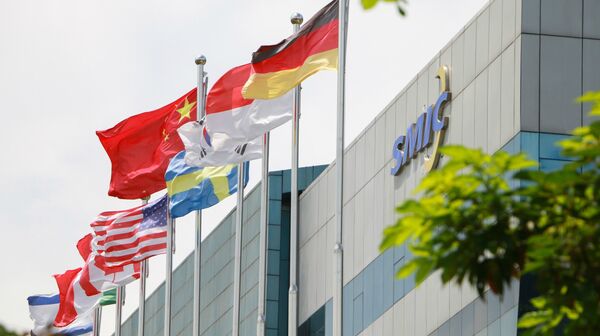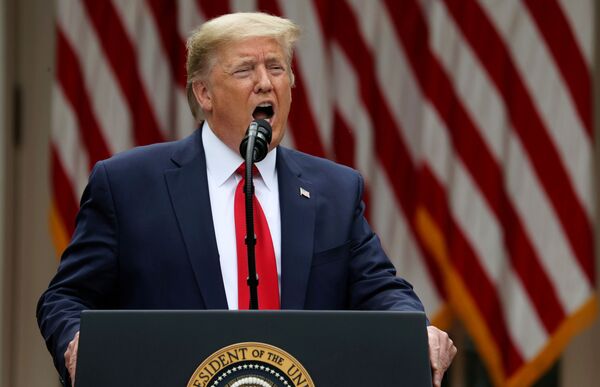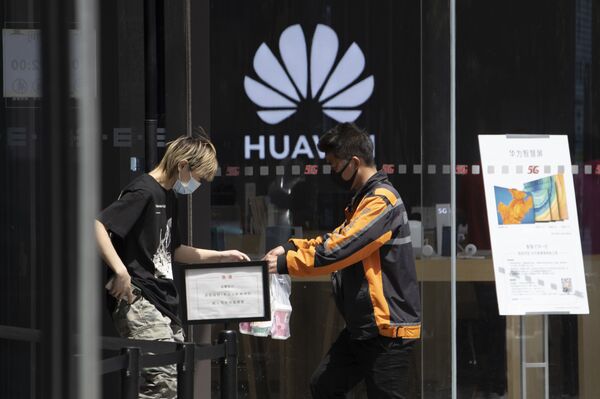As the COVID-19 pandemic continues to sweep the world, impacting the global economy and triggering market uncertainty, an increased number of foreign businesses are reportedly investing in China, particularly favouring such sensitive industries as finance and technology, reports CNBC, citing leading independent research provider Rhodium.
“Over the past 18 months, we have recorded levels of foreign M&A (mergers and acquisitions) into China that were not seen in the previous decade,” Rhodium’s partner Thilo Hanemann and founding partner Daniel H. Rosen write in an online report published on 18 June.
Underscoring the efforts of the Chinese government to gradually increase the scope of industries in which foreign businesses are allowed to participate, as well as lift certain restrictions on foreign-owned operations, the report says:
“Most of that activity has been driven by American and European firms taking advantage of looser foreign ownership limits or betting on Chinese consumer demand.”
Experts claim that many foreign financial institutions have been acquiring majority stakes in their Chinese joint ventures while applying for licenses to manage more local money.
This comes as China has been loosening restrictions on how foreign companies can participate in its financial markets, as previously large foreign banks could only hold a minority stake in the subsidiaries they operated in China.
Aa Shanghai wrapped up a high-level annual financial conference it hosted on Friday, global companies were buoyed by promises from China’s top regulators that local capital markets would continue to open their doors to foreign firms.
“The market in China is very big and lots of these foreign (corporate) investors, they are looking at the long-term business development in China… They’re not looking at the short and medium term,” said Martin Wong, managing partner of the insurance sector for the financial services industry at Deloitte China.
As China battles the economic fallout from the COVID-19 pandemic and the restrictions it entailed, further compounded by geopolitical pressures, its companies have been investing less overseas, the outlet cites data disclosed on 18 June by China’s Ministry of Commerce.

However, foreign investment surged 7.5 percent from a year ago in May, to reach 68.63 billion yuan ($9.87 billion).
Analysts in the Rhodium report suggest that the current spike in foreign business interest towards China is also driven by acknowledgement that due to government policy support and, in part, the rise of start-ups, the Asian giant is becoming a global leader in a spate of industries.
“For the first time, therefore, it is attractive for foreigners to buy technology and industrial assets rather than build from scratch,” says the report.
The Rhodium report highlighted several deals in particular that feed into the current trend.
Thus, Volkswagen, one of the world's leading manufacturers of automobiles and commercial vehicles, headquartered in Germany, is acquiring a 26 percent stake in Chinese battery maker Guoxuan High-Tech for $1.2 billion, and taking control of its joint venture with Anhui Jianghuai Automotive for $1.1 billion.
US multinational investment bank and financial services holding company J.P. Morgan Chase is taking full control of its Chinese mutual fund joint venture for about $1 billion, to reportedly become the first completely foreign-owned futures business in the country.
American food and beverage company Pepsi is reportedly to spend around $700 million to buy Chinese snack brand Be & Cheery.
Geopolitical Tensions
The marked business interest in China comes against the backdrop of simmering geopolitical tensions, which have persisted since US President Donald Trump’s administration increased the pressure on Beijing, slapping the country with tariffs, having long accused the country of unfair trading practices and intellectual property theft.
Washington delivered three rounds of tariffs in 2018, and a fourth one in September last year. The most recent round targeted Chinese imports, from meat to musical instruments, with a 15 percent duty.

Beijing hit back with tariffs ranging from 5 percent to 25 percent on US goods.
Since then, the stand-off escalated, reaching into the sphere of technology and finance, after Trump extended for another year an executive order signed in May 2019 declaring a national emergency and barring US companies from using telecommunications equipment made by firms deemed a national security risk, placing China’s Huawei - the world’s top telecoms equipment maker –on the Entity List.

Washington claims Huawei equipment could potentially be used to spy on countries at the behest of the Chinese government – something the company and Beijing have long denied.

The COVID-19 pandemic that originated in the Chinese city of Wuhan strained US-China relations further, as Trump insists on China's alleged cover-up of the seriousness of the coronavirus outbreak in the country in its early stages. Beijing has vehemently denied the allegations.




